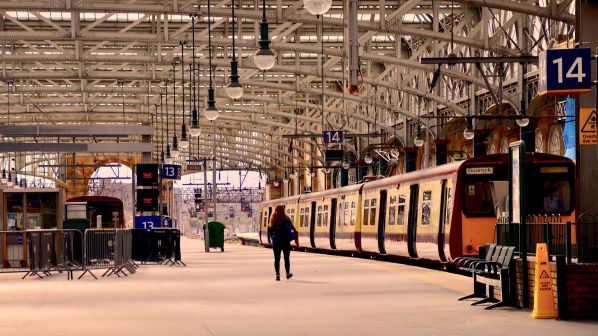THE British government has unveiled plans to create a UK Strategic Transport Network to improve links between the four countries comprising the UK, following the release of the interim report for the Union Connectivity Review (UCR), led by Sir Peter Hendy, chairman of Network Rail.
The report was released alongside an announcement from the government that it was launching a consultation in the spring to potentially reduce the Air Passenger Duty (APD) tax for internal flights.
Hendy was tasked by prime minister, Mr Boris Johnson, in June 2020 to explore ways in which transport can better connect all parts of Britain.
The interim report sets out how a UK Strategic Transport Network would help deliver this by significantly expanding and upgrading direct transport connections across road, rail, sea and air, helping to reduce delays and bottlenecks and stimulate economic growth.
The potential network will now form the main focus of Hendy’s continuing investigations, which will look to identify specific transport upgrades that could form the backbone of the network’s ambitions. The full report is set to be published in the summer.
The government has committed £20m towards exploring the development of projects already identified in the report, such as:
- improved rail connectivity between the north coast of Wales and England
- significantly faster rail links from England to Scotland, including looking at options to enhance the West Coast Mainline
- rail improvements in Southeast Wales building on ideas from the Welsh Government's Burns Commission, and
- upgrading the A75 highway between Gretna, Dumfries and Stranraer.
The report highlighted the role rail plays in cutting carbon emissions. Johnson says the government will consider the environmental and social impact of transport links when making future decisions on transport links that can better connect Britain. This process will also take into account possible improvements in the quality of life of the people who use this new or updated infrastructure.
However, the announcement also included plans to review the APD, including options to change the Air Passenger Duty (APD) tax treatment for domestic flights such as reintroducing a return leg exemption or creation of a new lower domestic rate. This is despite rail travel emitting one sixth of the greenhouse gases compared with flying. The Independent Committee on Climate Change predicts that aviation is likely to become the largest contributor to British emissions by 2050.
The UCR raised the issue of APD as a key concern, saying the tax needed to be set at an appropriate rate for journeys not realistic by rail such as those to northern Scotland and Northern Ireland.
The government says that it will continue to decarbonise domestic aviation as part of its ambition to reach net zero by 2050, including through mandating the use of sustainable aviation fuels.
“Funding to look at developing better rail links between England, Scotland and Wales rightly recognises the key role trains will play in a future decarbonised transport network,” says Mr Andy Bagnall, director general of the Rail Delivery Group (RDG), which represents train operators. “Rather than considering a cut to air passenger duty in isolation, government should ensure there is a level tax playing field across cars, planes and trains with each paying according to the environmental impact they have. This would encourage people to make greener choices to get from A to B such as taking the train.”
RDG says a proposal to provide a clear and simpler ticketing system, which it submitted to the review, would reduce the price of up to 80% of ‘walk up’ off-peak long-distance tickets and encourage 300 million more journeys across Britain, potentially cutting 1.2 million tonnes of CO2 emissions over 10 years.
“It’s now time to build back better in a way which brings every corner of the UK closer together,” Johnson says. “We will harness the incredible power of infrastructure to level up parts of our country that have too long been left off the transport map.
“This pioneering review by Sir Peter Hendy gives us the tools we need to deliver on our ambitions for a UK-wide transport network that encompasses sea, rail, and road - and I also want to cut passenger duty on domestic flights so we can support connectivity across the country.”
Hendy spoke with more than 100 organisations and received nearly 150 submissions to his call for evidence.
“Devolution has been good for transport but it has also led to a lack of attention to connectivity between the four nations, due to competing priorities and complex funding,” he says. “A UK Strategic Transport Network could resolve this, with its core objective centred around levelling up across the whole of the UK.”
The government will receive the final UCR recommendations ahead of the autumn Spending Review, where it will consider and confirm funding plans for delivering improved transport across Britain.
“It is positive to see the government set out ideas for new rail investment, including better connections from High Speed 2 (HS2) to Scotland and North Wales and higher capacity on the East Coast Main Line," says Mr Darren Caplan, chief executive of the Railway Industry Association. “Rail has a vital role to play in the UK’s economic recovery from Coronavirus and in achieving net zero by 2050, but to do so it needs certainty on planned rail schemes, like HS2 Eastern Leg, Northern Powerhouse Rail and the Midlands Rail Hub, as well as visibility of upcoming rail enhancement schemes, and the decarbonisation and digitalisation of the network.”

